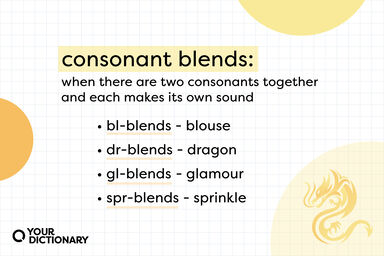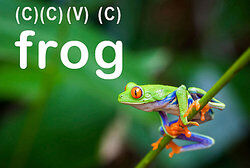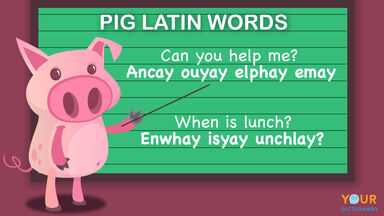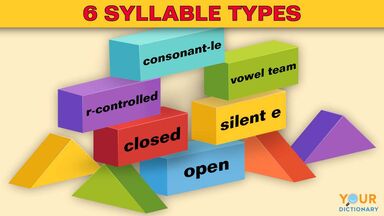Consonant Definition
kŏnsə-nənt
consonants
adjective
In harmony or agreement; in accord.
Webster's New World
Corresponding or alike in sound, as words or syllables.
American Heritage
Harmonious in tone.
Webster's New World
Having consonance.
Webster's New World
Consonantal.
Webster's New World
Synonyms:
noun
consonants
Any speech sound in the production of which the speaker completely stops and then releases the air stream, as in (p, t, k, b, d, g), stops it at one point while it escapes at another, as in (m, n, ŋ, l, r), forces it through a loosely closed or very narrow passage, as in (f, v, s, z, , , , , H, , h, w, y), or uses a combination of these means, as in (, j)
Webster's New World
A letter or symbol representing such a sound.
Webster's New World
Any phoneme, esp. one produced as described above, that does not form the peak of a syllable.
Webster's New World
Antonyms:
Other Word Forms of Consonant
Noun
Singular:
consonantPlural:
consonantsOrigin of Consonant
-
Middle English from Old French from Latin cōnsonāns cōnsonant- present participle of cōnsonāre to agree com- com- sonāre to sound swen- in Indo-European roots
From American Heritage Dictionary of the English Language, 5th Edition
-
From Old French, from Latin cōnsonāns (“sounding with”), from prefix con- (“with”), + present participle sonāns (“sounding”), from sonāre (“to sound”)
From Wiktionary
Find Similar Words
Find similar words to consonant using the buttons below.





